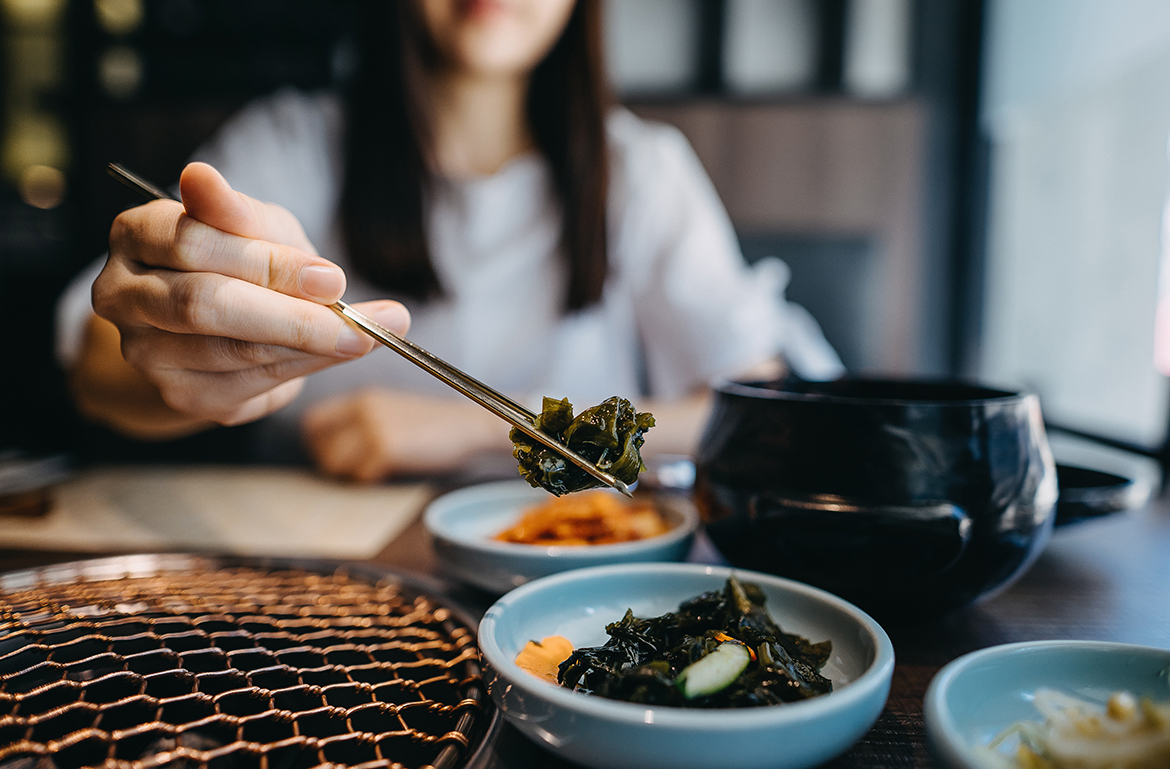In TCM, brief desire for sour, bitter, sweet, pungent, or salty foods is totally normal, says Jiyeon Park, DACM, a doctor of acupuncture and Chinese medicine and founder of Asiana Wellness in Newport Beach, California. “A transient craving for one of these five tastes indicates our body is trying to achieve a homeostasis; a natural, balancing function,” she explains.
- Jiyeon Park, DACM, Jiyeon Park, DACM is the founder of Asiana Wellness in California and is a board certified practicioner of Asian medicine and acupuncture.
“For example, a craving for a sweet energy bar the day after a poor night’s sleep, or reaching for a cold lemonade after a sweaty hike is our brains directing the balancing.” The key word there being transient. “A persistent craving of a particular taste could signal an imbalance in an organ system that perhaps needs to be further addressed,” Dr. Park says.
What craving salty foods means, according to TCM
Dr. Park goes on to explain that each taste is associated with an organ in the body, and, in the case of salt, it’s the kidneys. “Salt helps dissolve and move congestion minerals in the body, and in Chinese medicine, directly supports the kidney and bladder Zang-Fu organ pair,” adds Jennifer Sun, founder of Sun for Soul, a modern Chinese medicine and nutrition practice in New York City. “Therefore, in TCM, salt helps to move fluids [and] create healthy flow for the kidney and bladder.”
So according to Chinese medicine, if you are craving salty food, your body is either trying to find a balance or there is a kidney-related issue that may need to be addressed.
Common TCM reasons you may crave salty food
You have a kidney Qi imbalance
In Chinese medicine, Qi is defined as the vital life force that courses through the body. This energy can be disrupted in specific areas, considered a precursor to illness in TCM. In other words, cravings for salty foods could be a sign of a kidney Qi imbalance that could lead to tangible symptoms if not addressed.
“When the kidney system’s Qi is imbalanced or depleted, the body sends a subtle message of salt cravings,” notes Dr. Park. “Such messages from the body can prevent or reverse the issue before it manifests as a physical symptom.”
You’ve been eating too much sugar
As stated, when a hankering arises, it may simply be the body trying to find a balance between the five tastes. Dr. Park explains that in the case of salt cravings, this could be a sign that you have had a sugar overconsumption (and vice versa, that sugar cravings could be from eating too many foods).
You have adrenal insufficiency
The adrenal glands are located on top of the kidneys and are vital to regulating quite a few functions of the body. An adrenal insufficiency takes Qi imbalance a step further, and in this case, Dr. Park notes that low levels of cortisol—the hormone that regulates stress—are present.
“Depressed cortisol may present at certain times of the day—not necessarily throughout the day—and during these dips is when a person may have a salt craving,” shares Dr. Park. “In addition to craving salty foods, lower levels of cortisol also could present a variety of symptoms, including fatigue, apathy, lack of motivation, poor concentration, poor quality sleep, increased susceptibility to inflammation and allergies, inability to handle stress, depression that’s worse in the evening, excess sleep, early onset perimenopause or menopause, muscle pains, unstable body temperatures, and typical low blood sugar symptoms, such as dizziness and irritability, with symptoms relieved by food.”
How to satisfy your craving for salty foods
Sun encourages people to explore their cravings to be able to differentiate between levels of cravings. As noted, a “transient” craving is different from one that is more constant and may give you an idea of what is going on in the body (whether an imbalance or an actual deficiency).
“Traditional Chinese medicine aims for a balance in what we eat,” notes Sun. “For women, we naturally have many cravings around the times of our menstruation. For others, maybe cravings come during moments of stress.”
If you are unsure of your craving levels, finding a TCM practitioner who can help you figure it out and further identify the source is recommended.
When salt cravings arise, Dr. Park recommends reaching for the following healthy salty snacks:
- Seaweed
- Kalamata olives
- Sweet potato
- Chili with black beans
- Edamame
- Hard-boiled eggs
- Pears
- Plums
- Blueberries
- Avocados
- Black sesame seeds
- Walnuts
- Baked purple sweet potato chips
- Organic and in-season vegetable sticks
Understanding that cravings are a natural part of the body is important. As is aiming for balance between the five tastes. Says Dr. Park. It’s the key to achieving a healthier lifestyle in a TCM practice.
Oh hi! You look like someone who loves free workouts, discounts for cutting-edge wellness brands, and exclusive Well+Good content. Sign up for Well+, our online community of wellness insiders, and unlock your rewards instantly.
